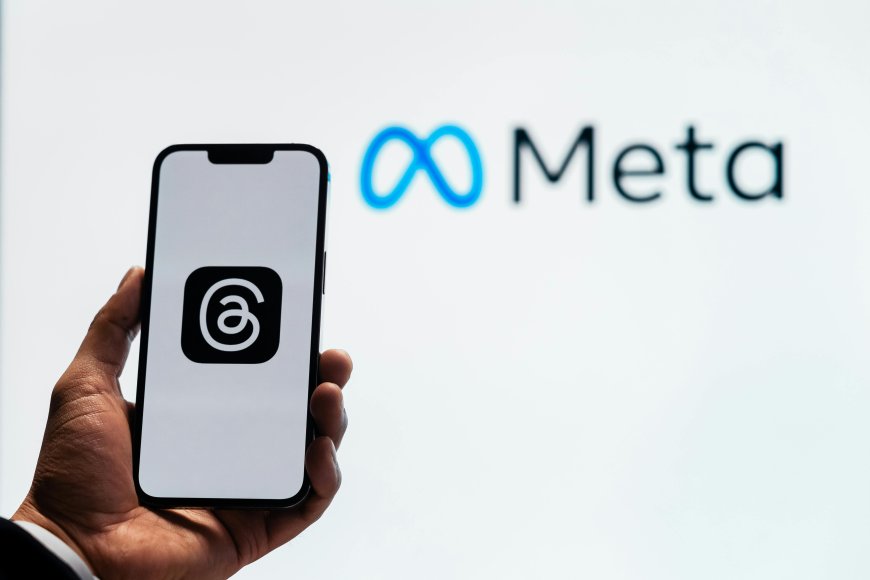Meta slows down its AI hiring spree
Meta reins in its aggressive AI talent spending, signaling a shift in Big Tech’s race for artificial intelligence dominance.

For much of the past two years, Meta has been on a hiring blitz—pulling in top artificial intelligence researchers, luring away scientists from leading universities, and offering eye-watering pay packages. The company, once seen as lagging behind rivals in the AI race, was determined to catch up with the likes of Google, Microsoft, and OpenAI.
Now, that aggressive spree is coming to a halt. According to insiders, Meta is quietly dialing back its lavish spending on AI talent. The company that once seemed willing to pay almost any price to secure an edge is putting on the brakes, signaling not just a financial shift but a cultural one.
The move raises important questions: Why is Meta slowing down now? What does this mean for the broader AI industry? And, most crucially, what does it reveal about the economics of artificial intelligence at a time when every major tech giant is betting the future on it?
The costly pursuit of AI dominance
When ChatGPT went viral in late 2022, Silicon Valley entered what can only be described as an arms race. Meta, often portrayed as trailing the pack, began opening its checkbook. Salaries for AI engineers ballooned, sometimes reaching well into the seven figures. Recruiters whispered of Meta swooping in with offers that doubled or tripled what competitors were paying.
For Mark Zuckerberg, the AI push was existential. The company’s earlier obsession—the metaverse—had yet to gain traction, and AI was quickly becoming the new lodestar for investors and Wall Street analysts. Spending heavily on talent was a way to prove Meta belonged in the first tier of AI innovators.
But hiring frenzies come at a cost. Compensation packages strained budgets. The competition for a small pool of elite researchers drove prices even higher. And while Meta’s open-source LLaMA models gained recognition, critics questioned whether the company’s hiring spree was sustainable.
Why Meta is tapping the brakes
Several factors explain why Meta is slowing its AI talent binge:
- Rising costs: Even for a tech giant with deep pockets, the sheer scale of salaries, bonuses, and research infrastructure was unsustainable.
- Investor pressure: Wall Street has been urging Meta to demonstrate fiscal discipline after years of heavy spending on the metaverse. A runaway AI hiring spree risked reigniting investor skepticism.
- Talent saturation: Many of the world’s leading researchers have already been snapped up. The pool of available top-tier AI talent is shrinking, reducing the marginal return on lavish spending.
- Internal alignment: Meta has reached a stage where scaling existing AI models may matter more than continually adding headcount.
The decision doesn’t mean Meta is abandoning AI—far from it. Instead, it signals a recalibration: focusing less on outbidding rivals for talent and more on getting results from the researchers already on board.

A change in Silicon Valley’s AI culture
Meta’s move reflects a broader shift in Silicon Valley. The early days of the AI race were defined by land-grabs—scooping up researchers, labs, and startups at any price. Now, the industry is entering a more measured phase.
Google, Microsoft, and Amazon, too, are beginning to face hard questions about the economics of AI. Training massive language models costs hundreds of millions of dollars in computing power. Cloud infrastructure must scale to support customer demand. Hiring sprees, once seen as essential, are being weighed against financial realities.
In short, the AI gold rush is maturing. The companies that thrive will be those that can balance cutting-edge research with sustainable business models.
Inside Meta: Shifting priorities
Meta insiders describe a subtle but important pivot. Instead of focusing solely on acquiring top names, the company is channeling resources into:
- Scaling LLaMA models: Meta’s open-source strategy has made LLaMA one of the most widely used foundation models. Future efforts are aimed at improving efficiency and adoption.
- Commercial applications: Beyond research, Meta is prioritizing products that can be embedded into Instagram, Facebook, and WhatsApp—features that keep billions engaged.
- Infrastructure investment: Rather than hiring hundreds of additional researchers, the company is investing in GPUs, data centers, and engineering teams capable of deploying AI at scale.
This isn’t a retreat from AI but a repositioning: turning research into real-world impact.
The human side: What it feels like inside the labs
One Meta researcher, speaking off the record, described the shift in emotional terms. “It felt like we were in a race with no finish line—every week another high-profile hire, another jaw-dropping salary. It was exciting, but also exhausting. Now, things are calmer. The pressure to outspend everyone has eased, and we can actually focus on the science again.”
This sentiment reflects a deeper truth. The AI race has not just been about algorithms and infrastructure—it has been about human ambition, pride, and burnout. For some employees, the pause in frenzied hiring comes as a relief. For others, it raises questions about career trajectories and Meta’s long-term vision.
What this means for the AI industry
Meta’s slowdown has ripple effects across the AI ecosystem:
- Universities may stabilize: With fewer researchers being lured away by record salaries, academic labs might retain talent longer.
- Startups could benefit: Instead of competing directly with Meta’s hiring machine, smaller AI firms may now find it easier to attract strong candidates.
- Market expectations shift: Investors will begin scrutinizing AI not just for hype but for monetization. The days of open-ended spending without clear revenue may be ending.
In this sense, Meta’s recalibration could mark the beginning of a new chapter: one where efficiency, not extravagance, defines leadership in AI.
The bigger question: Can AI spending ever pay off?
The slowdown underscores an uncomfortable reality—AI breakthroughs are dazzling, but the economics are still murky. Training costs soar, monetization remains uncertain, and public scrutiny of AI’s risks is intensifying.
For Meta, the challenge is proving that its massive bets—whether in the metaverse or AI—can eventually turn into profits. Integrating generative AI into advertising, content moderation, and messaging may help. But the pressure is on to show results sooner rather than later.
Conclusion: A pause, not a retreat
Meta’s decision to rein in its AI talent spending spree is not an abandonment of ambition. It is, instead, a sign of maturity—a recognition that the race for artificial intelligence cannot be won on salaries alone.
By redirecting focus toward scaling, infrastructure, and product integration, Meta may actually increase its odds of long-term success. The frenzy has given way to strategy.
For Silicon Valley, this is a reminder that technology revolutions are marathons, not sprints. The companies that endure will be those that know when to surge ahead—and when to pause for breath.
FAQs
1. Why is Meta slowing down its AI hiring?
Meta is scaling back due to rising costs, investor pressure, and a desire to focus on scaling existing models rather than chasing more headcount.
2. Does this mean Meta is pulling out of AI?
No. Meta remains deeply committed to AI but is shifting from a hiring blitz to optimizing research and product integration.
3. How will this affect the AI industry overall?
It may stabilize talent competition, benefit startups, and push the industry toward more sustainable business models.
4. What happens to Meta’s open-source LLaMA models?
LLaMA will remain central to Meta’s AI strategy, with ongoing development focused on efficiency and wide adoption.
5. Is the AI talent war over?
Not entirely—but the frenzied bidding for researchers is cooling. The focus is shifting from acquisition to application.
আপনার প্রতিক্রিয়া কী?
 পছন্দ
0
পছন্দ
0
 অপছন্দ
0
অপছন্দ
0
 ভালোবাসা
0
ভালোবাসা
0
 মজার
0
মজার
0
 রাগান্বিত
0
রাগান্বিত
0
 দুঃখজনক
0
দুঃখজনক
0
 বাহ
0
বাহ
0



























































